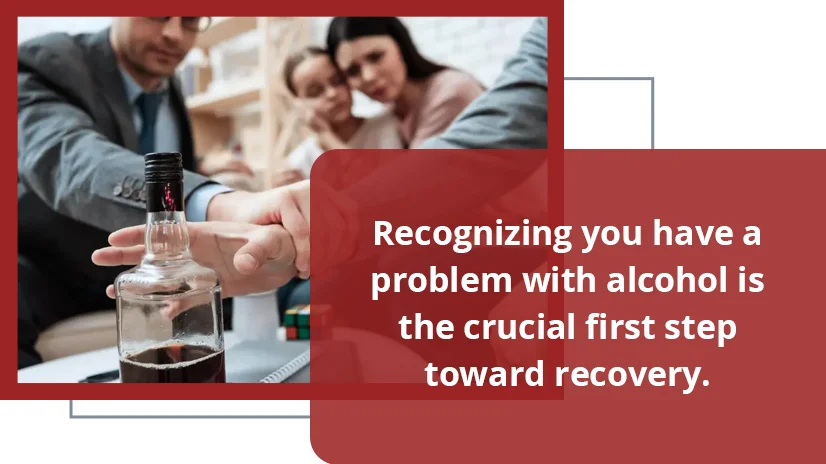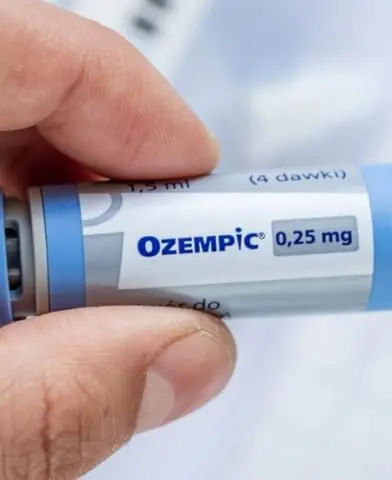
Alcohol Addiction Treatment: Taking The First Step
Clinically Reviewed by:
Taking the first step towards addressing alcohol addiction is pivotal for reclaiming control over one’s life. Acknowledging the issue and recognizing the need for help are vital initial actions. Individuals often begin by consulting trusted sources such as healthcare professionals and support groups.
Establish a plan tailored to personal needs and stay committed to recovery. This article offers guidance for individuals struggling with alcohol addiction, empowering readers to take the first steps toward recovery.

Key Takeaways
Alcohol addiction harms the physical and mental health of individuals. Here is what you will learn:
- Accepting the presence of alcohol addiction is the crucial first step towards getting treatment.
- Seeking guidance from family or healthcare professionals is necessary to navigate recovery.
- Various rehab programs offer therapy and support groups tailored to address alcohol addiction.
Indiana Center for Recovery offers comprehensive services of alcoholism treatment for holistic approaches to recovery. Contact us at (844) 6500064 to know more.
Understanding Alcohol Addiction
Understanding alcohol addiction requires examining both its biological and psychological components. Alcohol addiction, also known as alcoholism or alcohol use disorder (AUD), is a chronic, relapsing condition characterized by compulsive alcohol use.
Factors Impacting Proclivity To Alcohol Addiction
Genetic factors significantly contribute to an individual’s susceptibility to alcohol addiction. Family history plays a crucial role; if a close relative has struggled with alcohol, there’s a heightened likelihood of experiencing similar challenges.
Environmental influences also impact alcohol addiction. Growing up in an environment where heavy drinking is normalized can increase the likelihood of developing problematic drinking patterns. Peer pressure and social settings where alcohol consumption is expected can also influence behavior.
Psychological factors, such as stress, anxiety, and other mental health issues, can drive individuals to alcohol as a coping mechanism. Using alcohol to alleviate emotional distress can lead to dependence when it becomes the primary method of managing complicated feelings.
Identifying The Signs Of Alcohol Addiction
Identifying the signs of alcohol addiction is paramount in recognizing the onset of a potentially debilitating condition. From increased tolerance and withdrawal symptoms to neglecting responsibilities and engaging in risky behavior, these indicators can manifest in various facets of an individual’s life.
Physical Symptoms
Identifying signs of alcohol addiction is crucial for early intervention and support. Some of them are listed below:
- Frequent hangovers or withdrawal symptoms (shakes, nausea, sweating)
- Poor coordination or balance
- Weight loss or gain
- Chronic health issues (liver disease, cardiovascular problems)
- Frequent injuries or accidents
- Red, flushed complexion or broken capillaries on the face
- Tremors or shaking hands
- Blackouts or memory lapses
- Changes in appetite or sleeping patterns
- Persistent fatigue or lethargy
Identifying these physical symptoms of alcohol addiction is an essential step toward seeking help and beginning the journey toward recovery.
Emotional And Behavioral Indicators
Alcohol addiction can manifest through various emotional and behavioral indicators. Here are some key pointers to watch out for:
- Increased Tolerance: Needing more alcohol to achieve the same effects.
- Withdrawal Symptoms: Experiencing discomfort or distress when not drinking.
- Loss of Control: Inability to limit alcohol intake despite attempts to cut down.
- Preoccupation with Drinking: Constantly thinking about alcohol and planning opportunities to drink.
- Neglecting Responsibilities: Prioritizing drinking over work, school, or family obligations.
- Isolation: Withdrawing from social activities or hobbies in favor of drinking alone.
- Mood Swings: Fluctuations between irritability, depression, and euphoria related to alcohol consumption.
- Denial: Refusing to acknowledge the extent of one’s drinking problem.
If you or someone you know exhibits these signs, seeking professional help and support is essential for overcoming alcohol addiction.
Socio-Economic Consequences
Alcohol addiction can lead to severe problems, like financial troubles and strained relationships. People might feel guilty about their drinking but not know how to stop it. Adults with heavy alcohol use may need addiction treatment programs.
When someone spends a lot of money on alcohol, it can create financial strain for them and their family. It might mean less money for necessities like food, bills, etc. The negative consequences of alcohol addiction can affect both the person drinking and those around them.
First Step Towards Treatment
The first step towards treatment for alcohol addiction typically involves recognizing and acknowledging the problem. When someone doubts having an alcohol problem, start exploring treatment options. Here are some common steps individuals take toward treating alcohol addiction:
Self-Recognition Of Alcohol Addiction
Recognizing you have a problem with alcohol is the crucial first step toward recovery. Many individuals struggling with substance use disorders find it hard to admit they have a problem. Yet, facing the reality of addiction is essential to moving forward. It means acknowledging that alcohol has taken control of your life and admitting you need help.
Without this recognition, accessing treatment options becomes difficult. By accepting the presence of a substance use disorder, you open the door to seeking medical help, attending rehab facilities, or joining treatment centers. This acknowledgment begins a journey toward a healthier, sober life.
Importance Of Acceptance In The Recovery Process
Acceptance plays a pivotal role in overcoming substance abuse. It signifies understanding substances’ impact on your life and embracing the need for change. Without approval, treatment progress becomes challenging. Acceptance enables individuals to explore treatment options and engage fully in recovery efforts.
It empowers them to confront the underlying issues contributing to their substance use disorders. Through acceptance, individuals can seek support from rehab facilities and treatment centers, accessing the resources necessary for recovery. Embracing acceptance is not easy, but it is the cornerstone of reclaiming control over one’s life and embarking on the path to sobriety.
Preparing For The Road To Recovery
Preparing for the road to recovery from alcoholism is a significant and often challenging journey. Acknowledge that alcohol has become a problem in your life and accept that you need to make changes. It’s essential to prepare mentally and physically.
You must set realistic goals, maintain a positive attitude, and seek support from friends and family. It’s crucial to prioritize self-care by eating healthily, exercising regularly, and getting enough sleep.
Overcoming Denial
Overcoming denial is the first step on the road to recovery. It’s crucial to accept oneself without guilt. Realizing denial as a barrier is the initial step toward healing. Encourage self-acceptance by acknowledging progress each day. Emphasize the importance of taking that first step; it paves the way for building self-esteem and finding a healthier way forward.
Seeking Professional Help
Seeking professional help for addiction treatment is a crucial step towards recovery. Here’s a general guide on how to go about it:
When To Consult A Doctor
If you find that alcohol is affecting your daily life, relationships, or mental well-being, it may be time to seek professional help. Look for signs such as increased tolerance, withdrawal symptoms, or failed attempts to cut down. Consulting a doctor is crucial to assess your condition and determine the appropriate course of action towards recovery.
Healthcare Professionals And Addiction Treatment
In seeking help for alcohol addiction, various healthcare professionals play essential roles. Addiction specialists offer expertise in addressing substance abuse disorders. They may work alongside psychologists, therapists, and counselors specializing in behavioral therapy. These professionals collaborate to design personalized treatment plans aiming for long-term recovery.
Choosing The Right Healthcare Provider
Selecting the right healthcare provider for alcohol addiction treatment is a crucial decision. Consider factors such as their experience with residential programs, approach to long-term recovery, and proficiency in therapeutic interventions. Assessing their track record and aligning their treatment methods with your goals can aid in making an informed decision.
Involving The Family In Treatment
Involving family members in treatment can strengthen support networks, aiding in recovery from drug or alcohol dependence. Encouraging participation in support groups helps families understand addiction and provide necessary emotional support.
Role Of Family In Treatment Acceptance
Family members play a crucial role in accepting treatment for drug or alcohol abuse. Their support can motivate individuals to seek medical intervention and engage in treatment facilities. By understanding the level of care needed and participating in recreational activities, families contribute to the success of the recovery journey.
Strategies To Build An Effective Support System
Creating an effective support system involves connecting with support groups and family members. These groups offer understanding and empathy, reinforcing the importance of treatment. Engaging in recreational activities with supportive friends and family builds bonds and provides positive outlets.
Treatment Options For Alcohol Addiction
Treatment options for alcohol addiction vary depending on the individual’s needs and the severity of their addiction. Here are some common approaches:
Detoxification And Withdrawal Therapy
Detoxification helps remove alcohol from the body, which can be done in outpatient or inpatient settings. In severe cases, medical supervision is necessary to manage withdrawal symptoms like tremors and seizures. Counseling with an alcohol counselor supports this process by addressing emotional challenges.
Outpatient Versus Inpatient Rehabilitation
Outpatient rehab allows individuals to receive treatment at home, offering flexibility but requiring robust support systems. Inpatient rehab, conducted in rehab centers, provides intensive, 24/7 care for severe cases, aiding recovery through structured routines and therapies led by professionals.
Cognitive Behavioral Therapy (CBT)
CBT, guided by an alcohol counselor, targets unhealthy thought patterns and behaviors. Through therapy sessions, individuals learn coping strategies, identify triggers, and develop skills to resist urges. This treatment empowers individuals to change harmful habits, enhancing long-term recovery success.
Maintaining Sobriety After Treatment
Maintaining sobriety after addiction treatment is a challenging but achievable goal. Aftercare plays a crucial role in maintaining sobriety post-treatment. It provides ongoing support, guidance, and resources essential for navigating challenges and triggers in everyday life. Aftercare ensures individuals remain committed to recovery with tailored plans and continuous monitoring.
Coping mechanisms to prevent relapse include:
- Mindfulness practices.
- Seeking support from peers or therapists.
- Engaging in healthy activities.
- Developing effective stress-management techniques.
By implementing coping strategies, individuals can maintain their commitment to sobriety.
Frequently Asked Questions (FAQ)
The first step in treating addiction is typically assessment and diagnosis. It involves understanding the individual’s substance use patterns, medical history, mental health status, and social circumstances. Assessment helps determine the severity of addiction and any co-occurring disorders, guiding the development of a personalized treatment plan.
It may include physical exams, laboratory tests, and psychological evaluations. Effective treatment begins with a thorough understanding of the individual’s needs, allowing for tailored interventions to address the underlying factors contributing to addiction.
The first step in treating addiction is typically assessment and diagnosis. It involves understanding the individual’s substance use patterns, medical history, mental health status, and social circumstances. Assessment helps determine the severity of addiction and any co-occurring disorders, guiding the development of a personalized treatment plan.
It may include physical exams, laboratory tests, and psychological evaluations. Effective treatment begins with a thorough understanding of the individual’s unique needs, allowing for tailored interventions to address the underlying factors contributing to addiction.






 100% Confidential
100% Confidential